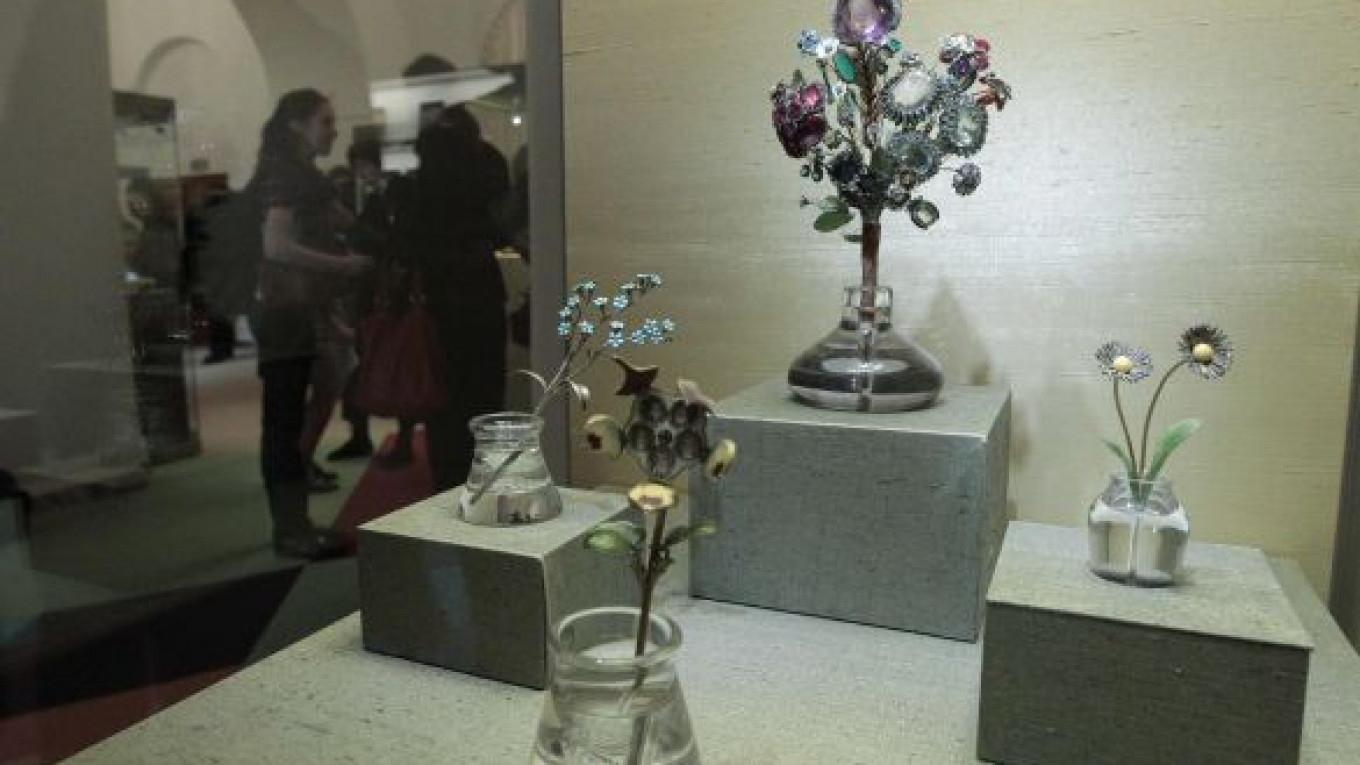Six Faberge eggs crown an exhibit of gem and stone treasures covering 150 years of Russian history in an exhibit at the Kremlin, which aims to lure back interest in art from the motherland.
The 10-centimeter-tall bejeweled eggs, some containing tiny gold ships, go on display beside a marble sausage made in the 1930-40s, evoking the hungry years of the Soviet era.
“All of the works at this exhibit are historical, representing the lifestyles of certain periods in Russia,” Tatyana Muntyan, curator of the Faberge Collection, told reporters in a bell tower chamber within the Kremlin Museums.
Faberge-designed gem flowers that once adorned royal cloaks, mini sculptures of soldiers who served under 18th-century Empress Catherine the Great and an ashtray in the shape of a hammer and sickle all feature at the exhibit, which has items from 17 Russian museums as well as private collectors.
The Carl Faberge firm was founded in 1842 in Russia’s imperial capital St. Petersburg and instantly gained fame after Russia’s tsars snatched up the eggs and jewelry.
Muntyan said recent acquisitions of Faberge by Russian oligarchs mean that the masterpieces are once again in the spotlight.
“The situation surrounding Faberge has changed,” she said.
Most of the Faberge treasures were sold by the Bolsheviks as they swept to power in the October Revolution of 1917 that led to the founding of the Soviet Union.
Of the 46 Faberge eggs believed to have survived, 19 are in Russia, including the nine Faberge Easter eggs bought by metals tycoon Viktor Vekselberg in 2004.
Costing $900 million, Vekselberg bought all the eggs belonging to the Forbes family. The other 10 in Russia, including the six that went on display Friday, are usually housed in the Kremlin armory.
“Now Russia has more eggs than any other country. … The heritage is coming back,” Muntyan said.
Prominent Russian collector Alexander Ivanov, who bought a Faberge egg in London in 2007 for $18.5 million, said at the time it was a bargain.
A Message from The Moscow Times:
Dear readers,
We are facing unprecedented challenges. Russia's Prosecutor General's Office has designated The Moscow Times as an "undesirable" organization, criminalizing our work and putting our staff at risk of prosecution. This follows our earlier unjust labeling as a "foreign agent."
These actions are direct attempts to silence independent journalism in Russia. The authorities claim our work "discredits the decisions of the Russian leadership." We see things differently: we strive to provide accurate, unbiased reporting on Russia.
We, the journalists of The Moscow Times, refuse to be silenced. But to continue our work, we need your help.
Your support, no matter how small, makes a world of difference. If you can, please support us monthly starting from just $2. It's quick to set up, and every contribution makes a significant impact.
By supporting The Moscow Times, you're defending open, independent journalism in the face of repression. Thank you for standing with us.
Remind me later.


